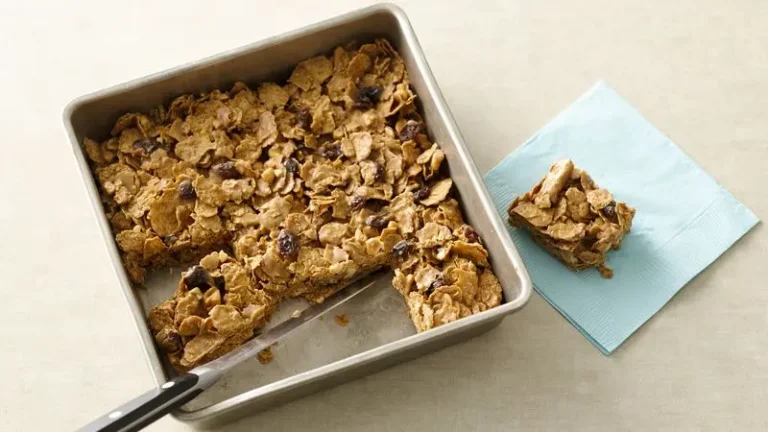What Does Moringa Smell Like? A Friendly Guide to the Aroma of Moringa Leaves
When it comes to moringa, there are a lot of questions that people have about this unique plant. One of the most common questions is what does moringa smell like? If you’re curious about this question, you’re not alone. Moringa is a plant that has been used for centuries in traditional medicine, and it has a lot of different uses.
The smell of moringa can vary depending on the form that you’re using. For example, if you’re using moringa powder or leaves, you can expect a very earthy aroma. Some people describe the smell as being a cross between roasted nuts and acidic coffee. However, the scent of moringa is not typically overpowering, and it won’t necessarily be the dominant scent in a product like moringa oil or body wash.
Overall, the smell of moringa is a unique and interesting aspect of this plant. Whether you’re using moringa for its health benefits or you’re just curious about this plant, understanding its scent can help you get a better sense of what it’s all about. So if you’re wondering what moringa smells like, take a deep breath and explore the wonderful world of this versatile plant.
Understanding Moringa
If you’re curious about the moringa plant, you’re not alone. Moringa, also known as moringa oleifera, miracle tree, drumstick tree, or horseradish tree, is a plant that has gained popularity in recent years due to its potential health benefits.
Moringa is a fast-growing tree that is native to India, Pakistan, and Nepal, but it is now grown in many other parts of the world, including Africa, Asia, and South America. The tree has long, thin, green leaves that are packed with nutrients, and it produces long, slender pods that contain seeds that can be roasted and eaten like nuts.
Moringa has been used for centuries in traditional medicine to treat a variety of ailments, including inflammation, infections, and digestive issues. More recently, scientific studies have begun to explore the potential health benefits of moringa, and the results are promising.
One of the reasons moringa is so popular is because it is packed with nutrients. The leaves of the moringa tree contain high levels of vitamins A, C, and E, as well as minerals like calcium, magnesium, and potassium. In fact, some studies have shown that moringa leaves contain more nutrients than many other common fruits and vegetables.
Another potential benefit of moringa is its ability to fight inflammation. Inflammation is a natural response by the body to injury or infection, but chronic inflammation can lead to a variety of health problems, including heart disease and cancer. Some studies have shown that moringa may help reduce inflammation in the body, which could help prevent or treat these conditions.
Overall, moringa is a fascinating plant with a variety of potential health benefits. Whether you’re interested in trying moringa for yourself or just learning more about this amazing plant, there’s no denying that moringa is worth exploring further.
The Aroma of Moringa
Moringa is a plant that is known for its numerous health benefits. However, many people are curious about its smell. If you’re wondering what moringa smells like, this section is for you.
Moringa has a unique and fresh smell that is often described as earthy and nutty. Some people also say that it has a hint of vanilla-like fragrance. The smell of moringa is not overpowering, and it’s not too strong to be unpleasant.
The aroma of moringa can vary depending on the part of the plant that is being used. For example, the leaves and pods have a mild odor that is sometimes described as being similar to that of green tea or spinach. On the other hand, the flowers of the moringa plant have a sweet fragrance that is similar to that of jasmine.
If you’re using moringa oil or body wash, you might notice that the smell is not as strong as when you’re using the leaves or flowers. This is because the added fragrances in these products can sometimes overpower the natural smell of moringa.
In conclusion, the aroma of moringa is unique and fresh. It has a mild, earthy smell that is not overpowering and can be described as nutty or vanilla-like. Whether you’re using the leaves, flowers, or oil, you can expect a pleasant and refreshing scent.
Moringa Leaves and Their Scent
When it comes to the scent of Moringa, the leaves are the most commonly used part of the plant. Raw Moringa leaves have a mild, earthy scent that is often compared to the aroma of green tea or spinach. The scent is not overpowering, but it is noticeable when you are in close proximity to the leaves.
If you are interested in experiencing the scent of Moringa leaves for yourself, you can easily do so by purchasing raw Moringa leaves from a health food store or online retailer. Simply open the package and take a whiff of the leaves to get an idea of what they smell like.
It should be noted that the scent of Moringa leaves can vary depending on a few factors, such as the age of the leaves and the way they were harvested. Generally speaking, younger leaves tend to have a milder scent than older leaves, and leaves that were harvested from the top of the plant tend to have a stronger scent than leaves harvested from the bottom.
In addition to their scent, Moringa leaves are also known for their nutritional value. They are a rich source of vitamins and minerals, including vitamin C, vitamin A, calcium, and iron. If you are looking for a healthy and flavorful addition to your diet, Moringa leaves are definitely worth considering.
The Fragrance of Moringa Flowers
If you’ve ever smelled a jasmine flower, you’ll recognize the sweet, floral scent of the Moringa flower. The fragrance of Moringa flowers is delicate, yet distinctive, with a sweet, floral aroma that is often compared to the scent of jasmine.
The fragrance of Moringa flowers is most potent in the morning when the flowers are fresh. As the day wears on, the scent fades, and by evening, it is barely noticeable.
Moringa flowers are used in a variety of ways, including as a natural perfume. The flowers are also used to flavor tea and other beverages.
In addition to their sweet fragrance, Moringa flowers are also visually stunning. They are small, white flowers with delicate petals that form a cluster at the end of each branch.
Overall, the fragrance of Moringa flowers is one of the tree’s most beloved features. If you’re lucky enough to come across a Moringa tree in bloom, take a moment to enjoy the sweet, floral scent of its flowers.
Moringa Oil and Its Unique Smell
Moringa oil is derived from the seeds of the Moringa oleifera tree, which is native to the Himalayan mountains. The oil has been used for centuries in Ayurvedic medicine and is now gaining popularity in the beauty industry due to its numerous benefits. One of the unique features of moringa oil is its distinct smell.
When you smell moringa oil, you will notice a nutty and slightly sweet aroma. The smell is not overpowering, and some people even describe it as pleasant. The scent of moringa oil is due to its high oleic acid content. Oleic acid is a monounsaturated fatty acid that is commonly found in vegetable oils, such as olive oil.
Moringa oil has a high concentration of oleic acid, which gives it a unique smell. Oleic acid is also responsible for the oil’s moisturizing properties, making it an excellent choice for dry and sensitive skin. The oil is easily absorbed by the skin and does not leave a greasy residue.
In addition to its moisturizing properties, moringa oil is also rich in antioxidants, vitamins, and minerals. These nutrients help to nourish and protect the skin from environmental stressors, such as pollution and UV rays. Moringa oil is also known for its anti-inflammatory properties, making it an excellent choice for those with acne-prone or sensitive skin.
Overall, moringa oil has a distinct and pleasant smell due to its high oleic acid content. The oil is a popular choice in the beauty industry due to its moisturizing, nourishing, and anti-inflammatory properties.
The Scent of Moringa in Various Forms
Moringa has a unique scent that can vary depending on the form in which it is used. Whether you are using moringa powder, leaf powder, oil form, or tea, you can expect a slightly different aroma. Here’s a breakdown of what to expect from each form:
Moringa Powder
Moringa powder has a very earthy aroma, and this smell is a cross between roasted nuts and acidic coffee. However, the scent of moringa powder is not overpowering enough to overcome the added fragrances in other forms like moringa oil and body wash.
Leaf Powder
Moringa leaf powder has a mild scent that is sometimes described as being similar to that of green tea or spinach. It has a slightly sweet and earthy aroma that is not too strong.
Oil Form
Moringa oil has a mild, earthy scent that is sometimes described as being similar to that of matcha or spinach. The odor of moringa oil can vary depending on the part of the plant that is being used. The leaves and pods have a mild odor that is sometimes described as being similar to that of green tea or spinach.
Tea
Moringa tea has a pleasant, refreshing aroma that is slightly sweet and earthy. It has a mild scent that is not too strong or overpowering.
Overall, the scent of moringa is mild and pleasant, and it is not overpowering enough to be unpleasant. Whether you are using moringa powder, leaf powder, oil form, or tea, you can expect a unique and refreshing aroma that is perfect for any occasion.
Moringa’s Smell in Cosmetics and Personal Care Products
If you’re a fan of natural beauty products, you may have come across Moringa as an ingredient in your favorite cosmetics. Moringa oil is a popular ingredient in many personal care products due to its moisturizing, cleansing, and emollient properties.
When it comes to the smell of Moringa in cosmetics, it’s important to note that the scent can vary depending on the product and the brand. However, in general, Moringa has a fresh, herbal scent that can be described as slightly sweet and nutty.
Moringa oil is commonly used in shampoos and conditioners due to its ability to penetrate deeply into the hair follicle, bringing nutrients to the hair and helping it to retain moisture. The oil’s high oleic acid content also makes it an excellent choice for moisturizing body lotions and shower gels.
If you’re looking for natural skincare products that contain Moringa, you may want to check out The Body Shop’s Moringa line. The line includes body butter, shower gel, and body milk, all of which are infused with Moringa oil and have a light, refreshing scent.
Overall, Moringa’s smell in cosmetics and personal care products is pleasant and fresh, making it a popular choice for those who prefer natural ingredients in their beauty routine.
The Role of Moringa in Cuisine and Its Associated Smell
Moringa is a versatile plant that has been used in various cuisines around the world. Its leaves, pods, and seeds can be consumed in many different ways, and they all have a unique taste and smell. In this section, we will explore the role of moringa in cuisine and its associated smell.
Eating Moringa
Moringa leaves are a popular ingredient in many dishes, especially in African and Asian cuisines. They have a slightly bitter taste and a distinct aroma that is often described as earthy or nutty. Moringa leaves are commonly used in soups, stews, and curries, and they can also be added to salads or smoothies.
Moringa pods, also known as drumsticks, are another part of the plant that is commonly consumed. They have a mild taste and a tender texture, and they are often used in Indian and Southeast Asian cuisines. Moringa pods can be cooked in a variety of ways, including stir-frying, steaming, or boiling.
Moringa seeds are also edible, and they have a slightly sweet and nutty flavor. They can be roasted and eaten as a snack, or they can be used to make moringa oil, which is often used in cooking.
Cooking with Moringa
Moringa is a versatile ingredient that can be used in many different dishes. Its leaves, pods, and seeds can be added to soups, stews, curries, and salads, and they can also be used to make sauces, dips, and spreads.
Moringa powder is another popular ingredient that is often used in cooking. It is made by drying and grinding moringa leaves, and it has a slightly sweet and nutty flavor. Moringa powder can be added to smoothies, baked goods, and other dishes to boost their nutritional value.
Moringa in African and Asian Cuisines
Moringa is a staple ingredient in many African and Asian cuisines. In Africa, it is commonly used in soups and stews, and it is often paired with other vegetables and meats. In Asia, moringa is used in a variety of dishes, including curries, stir-fries, and salads.
In Southeast Asia, moringa is often used in traditional medicine, and it is believed to have many health benefits. It is also used in cooking, and it is a popular ingredient in many Thai and Filipino dishes.
The Smell of Moringa in Cuisine
Moringa has a distinct aroma that is often described as earthy or nutty. The smell of moringa leaves is more pronounced than the smell of moringa pods or seeds, and it can be overpowering if too much is used in a dish. However, when used in moderation, the smell of moringa adds a unique and delicious flavor to many dishes.
Overall, moringa is a versatile and nutritious ingredient that is used in many different cuisines around the world. Its distinct taste and smell make it a popular choice for cooks and chefs, and its many health benefits make it a valuable addition to any diet.
Health Benefits and Nutritional Profile of Moringa
If you are looking for a nutrient-dense food that can provide you with numerous health benefits, then moringa is the perfect choice for you. Moringa oleifera is a tree that is native to India and is also known as the drumstick tree. It has been used for centuries in traditional medicine to treat a variety of ailments.
Moringa is packed with vitamins and minerals, making it a great addition to your diet. It contains high levels of vitamin C, vitamin A, calcium, potassium, and iron. It is also a good source of protein, which is essential for building and repairing tissues in the body.
One of the most significant benefits of moringa is its ability to help control blood sugar levels. It contains compounds that can help regulate insulin levels, making it an excellent choice for people with diabetes. Additionally, moringa has been shown to have anti-inflammatory and antibacterial properties, which can help reduce inflammation and fight off infections.
Moringa has also been linked to improved digestive health and may help prevent colon cancer. It contains a compound called quercetin, which has been shown to have anti-cancer properties. Furthermore, moringa has been shown to have a positive effect on edema, which is the swelling caused by excess fluid in the body.
Another compound found in moringa is niazimicin, which has been shown to have a positive effect on weight loss. It can help reduce the absorption of fat in the body, making it an excellent choice for people who are trying to lose weight.
Lastly, moringa has been shown to have a positive effect on high blood pressure. It contains compounds that can help relax blood vessels, which can help lower blood pressure levels.
Overall, moringa is an excellent addition to any diet and can provide numerous health benefits. With its high nutrient content and various health benefits, it is no wonder why it has been dubbed a superfood.
Potential Side Effects of Moringa and Its Smell
Moringa is a nutrient-packed plant that has been used for centuries in traditional medicine. While it has many potential benefits, it is important to be aware of its potential side effects, including its smell.
Side Effects of Moringa
While moringa is generally considered safe for most people, it can cause some side effects in certain individuals. These side effects may include:
- Nausea and vomiting: Moringa has a bitter taste that may induce a gag reflex, especially if you are tasting it for the first time. At high doses, it can lead to nausea and vomiting.
- Diarrhea: Moringa may have a laxative effect, which can cause diarrhea in some people.
- Allergic reactions: Some people may be allergic to moringa, which can cause symptoms such as itching, rash, and difficulty breathing.
If you experience any of these side effects, stop taking moringa and consult your healthcare provider.
Moringa and Its Smell
Moringa has a strong, earthy smell that some people may find unpleasant. This smell is due to the high concentration of sulfur-containing compounds in the plant.
While the smell of moringa may take some getting used to, it is important to note that it does not indicate that the plant is spoiled or unsafe to consume. In fact, the smell is a sign of the plant’s high nutrient content.
If you find the smell of moringa to be overwhelming, you can try taking it in capsule form or adding it to smoothies or other recipes to mask the taste and smell.
Overall, while moringa has many potential benefits, it is important to be aware of its potential side effects and its strong smell. If you have any concerns or experience any adverse reactions, be sure to consult your healthcare provider.
Frequently Asked Questions
What does Moringa Body Shop fragrance smell like?
Moringa Body Shop fragrance has a fresh, floral scent with notes of jasmine, lily of the valley, and rose. It also has a subtle hint of vanilla and sandalwood, which add warmth and depth to the fragrance.
What is the scent of Moringa perfume oil?
Moringa perfume oil has a light, sweet scent with notes of citrus, jasmine, and lily of the valley. It also has a subtle hint of sandalwood, which adds depth and warmth to the fragrance.
What are the notes in The Body Shop Moringa Body Mist?
The Body Shop Moringa Body Mist has a fresh, floral scent with notes of jasmine, lily of the valley, and rose. It also has a subtle hint of vanilla and sandalwood, which add warmth and depth to the fragrance.
Does Moringa have a distinct aroma?
Yes, Moringa has a distinct aroma that is difficult to describe. Some people say it smells like a combination of burnt tires and cabbage, while others say it smells like a mix of wet hay and crushed grass. However, the most common description of the smell of Moringa is that it smells like peanut butter.
What is the fragrance of Argan?
Argan has a nutty, earthy scent with notes of cedarwood and sandalwood. It also has a subtle hint of vanilla, which adds warmth and depth to the fragrance.
What does Noni smell like?
Noni has a pungent, fruity scent with notes of pineapple, mango, and guava. It also has a subtle hint of earthy undertones, which add depth and complexity to the fragrance.







